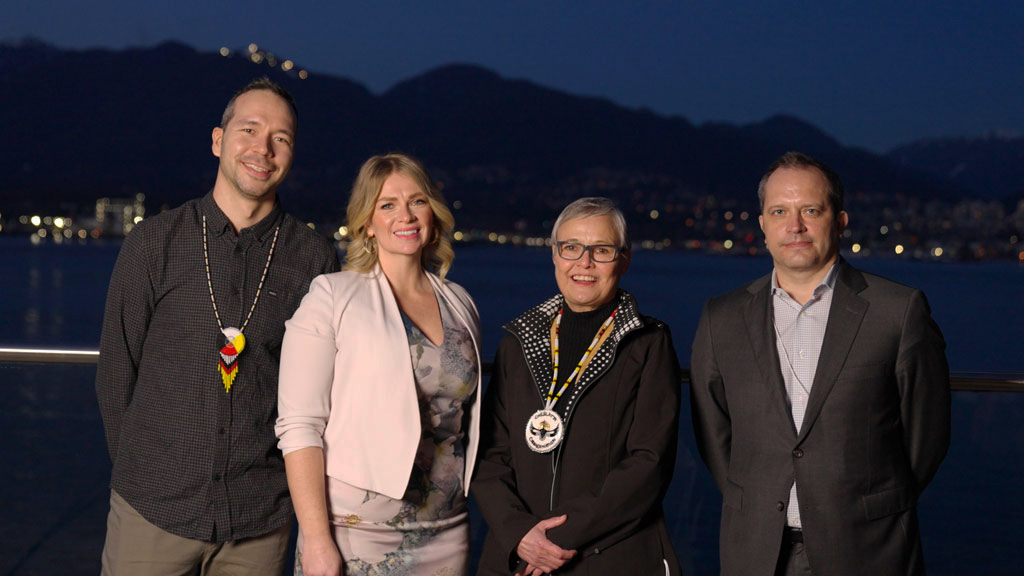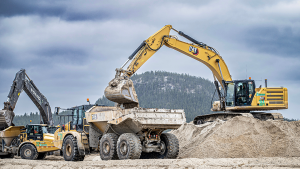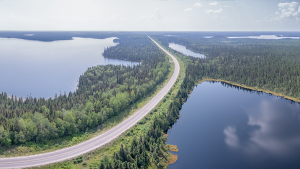First Nations major project proponents are hailing the establishment of a $5-billion Indigenous Loan Guarantee Program in the recent federal budget as a game-changer that might well serve as a catalyst for First Nations’ participation in multiple projects in the near future.
Enabling legislation for the loan program was included in the budget bill tabled by Finance Minister Chrystia Freeland April 16. The budget document referred to support for natural resource and energy projects.
Consultant Qasim Saddique of the firm , adviser to the business arms of the�����Ի� in northern Ontario, said the support will create new relationships between First Nations and companies that are undertaking projects, moving beyond rights and into equity partnerships. It also benefits governments looking to meet their policy objectives.
“It is a game-changer because it enables First Nations to bring potentially guaranteed capital to the table, which they wouldn’t be able to do in the past,” Saddique said.
‘Transformational’ resource projects
Goldy Hyder, CEO of the , said in a statement the program “will have a meaningful impact on Indigenous communities by unlocking equity partnerships in transformational resource projects.”
The budget stated Indigenous communities have fewer options for securing capital or leveraging existing assets as collateral, leading to increased borrowing rates that create a barrier to equity investment.
With the new program, “Indigenous equity participation is anticipated to grow significantly, with the research expecting this potential to reach $525 billion in capital investment over the next 10 years.”
Coalition CEO Niilo Edwards said it’s widely recognized that without government support First Nations cannot get access to capital or have the ability to negotiate with the private sector.
“So yes…it is a great new day, but it is also another tool in the toolbox that helps to fill gaps for First Nations that are looking to finance projects.”
Four provinces currently have Indigenous loan guarantee programs or have such programs in the works, including Ontario and Alberta, and Edwards noted there have been no defaults since the Ontario program was launched over a decade ago. The Canada Infrastructure Bank also has an Indigenous infrastructure stream in its mandate.
“Indigenous finance is a complex area,” said Edwards, adding the various programs provide Indigenous nations with more options.
The First Nations Major Projects Coalition is non-profit agency representing 155 First Nations. Its project portfolio now exceeds a combined capital cost of over $45 billion.
Edwards explained the coalition’s functions include offering Indigenous clients help through “informed decision-making around economics and the environmental implications of major project developments of First Nations rights and interests.”
470 resource projects
The coalition targets projects with a value of at least $100 million.
The figure of $525 billion mentioned in the budget represents some 470 potential natural resource projects, Edwards said, and the coalition calculates there could be $50 billion of those projects financed by Indigenous interests.
Just within the coalition’s membership right now, Edwards said, there are four major projects worth a total of $500 million that require financing in the next year and are potential beneficiaries of the new loans program once that is implemented.
He said he could not disclose details at this point.
Two recent projects where the coalition was involved in assisting First Nations to obtain equity partnerships are the $14.5-billion Coastal Gaslink pipeline project in British Columbia and the $200-million Hydro One Lakeshore transmission line project in southern Ontario. Edwards said the coalition was variously involved in equity negotiations, governance discussions and environmental consulting but could not disclose the value of the First Nations’ equity in those projects.
“Another perspective that I think is really important to this too is the value that is being captured here, that First Nations are bringing to the table,” he said of each set of negotiations. “They are providing consent, they are providing access to the territory.
“If they choose to make these decisions, it doesn’t come without risk and loss to them.”
Saddique is currently advising the Webequie and Marten Falls First Nations as proponents on a billion-dollar project involving three all-season road segments in the vicinity of Ontario’s mineral-rich Ring of Fire. In future there could certainly be consideration of equity interests in mineral extraction.
“There’s an opportunity to really augment those proponencies with capital at the table, to change the conversation quite a bit,” he said of the potential new financing for the road projects.
Follow the author on Twitter .








Recent Comments
comments for this post are closed